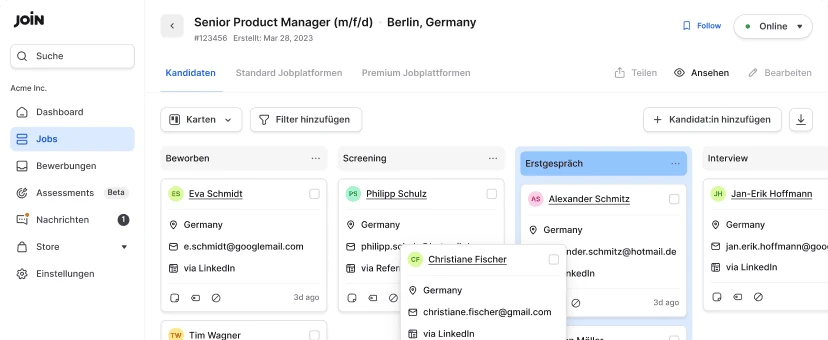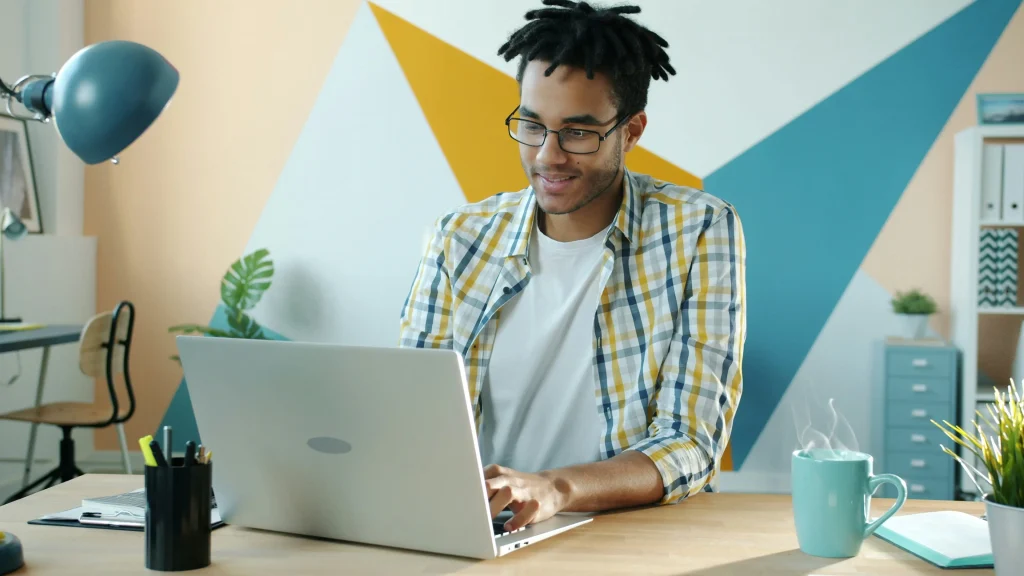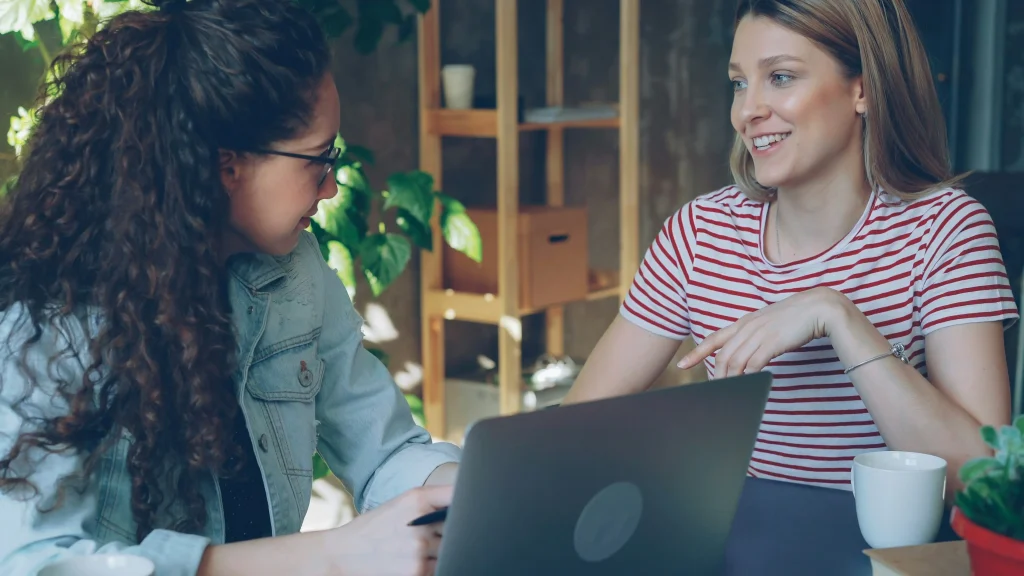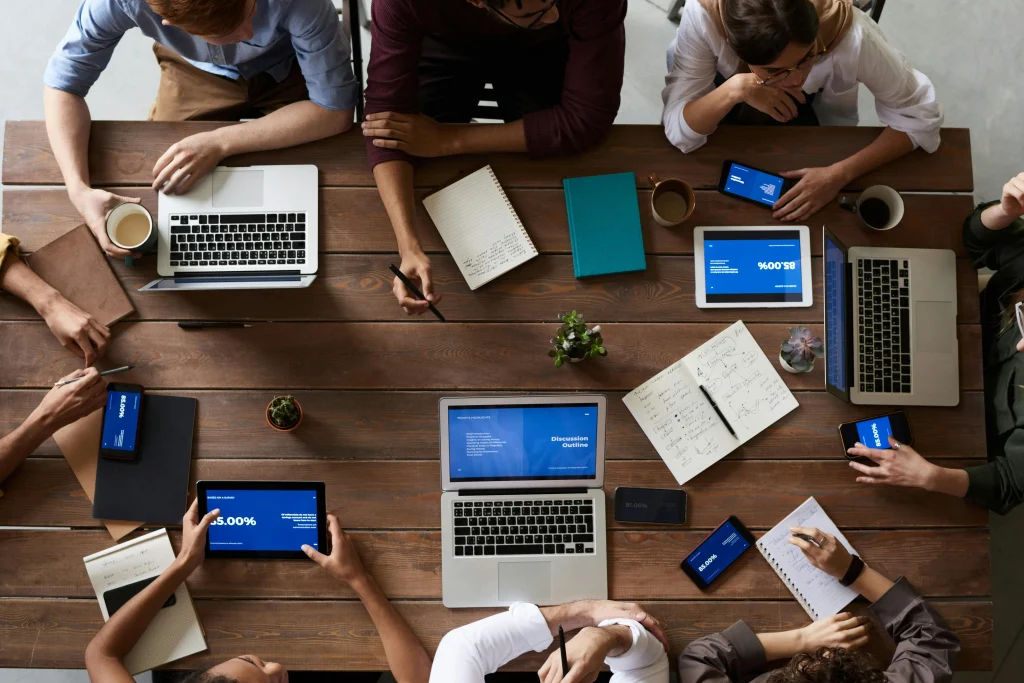Best interview questions for your hiring process
Events Coordinator Interview questions
An Events Coordinator will work independently, or with a small team, to organise a wide range of events for your brand. This could be product launches, press releases, company celebrations, exhibitions, or charity events.
Some of the most important criteria to look for while interviewing Event Coordinators are:
- Excellent communication skills, a good Events Coordinator will be able to work across different teams seamlessly.
- Outstanding organisational skills. Coordinating events means multitasking quite often so great planning is essential.
- Good negotiation skills, as well as the ability to work with large budgets.
- Of course, a good knowledge of what’s needed before the event starts, such as risk management and health & safety.
Interviewing an Events Coordinator
Once you’ve written your job advertisement, you’ll soon start receiving applications for your Events Coordinator position. It’s important that you find someone who is well versed in the events industry, and who is very well organised.
To start the interview it’s always best to make candidates feel at ease, as it is likely they’ll be nervous! To do this, you can ask some easier questions about their background and experience. Doing so makes it much more likely that they’ll open up and have more of an in-depth discussion later on during the more difficult or specific questions.
For the interview
A positive opener to start
What has been your journey so far?
What do you enjoy most about organising events?
Behavioral Questions
Why did you choose to become an Events Coordinator? What do you enjoy the most about your job?
What kind of events do you like to work on the most?
Again, this will give you a better idea of why they work in events and what you can expect from them creatively.
What do you think personally makes a good event great?
A good Events Coordinator would have their own opinions about what makes a good event. There’s no right or wrong answer, it will mostly show their personality.
What are some common problems that Event Coordinators come across?
Experienced Events Coordinators will be aware of the most common issues that arise when planning events and be able to work around them.
What was the most fun event you’ve planned?
This will give you an idea of their personal style and how they approach events management.
Soft Skills
If a deadline is fast approaching and you’re concerned that some of the planning will not be ready in time, how would you approach this/communicate about it?
Excellent organisation skills are an absolute must when planning events. A good candidate will know to communicate any changes or blockers as soon as possible.
How do you work to minimise miscommunications while working on event planning?
Communication skills are essential to the success of this role. Over communicating should be a technique they’re comfortable using.
In your opinion, what skills should be most important in an Events Coordinator?
This will give you an idea of how the candidate ticks and what they value the most in their role.
Can you tell me about a time that you’ve had to work on planning multiple events at once? How did you handle that?
Multitasking is a huge part of this role, they should have their own personal techniques that work for them when trying to plan several different things at once.
Hard Skills
What kind of events have you had the most experience with organising/hosting/coordinating?
They don’t need to have a wide range of experience already, but each type of event is different and has different requirements. Knowing the difference of what might be expected is essential.
Have you had some experience working with large budgets before?
This is going to be an important aspect of their role and you should feel confident that they will budget responsibly.
What kind of features do you look for in an event venue before considering it?
Choosing a venue is arguably one of the most important parts of event planning. They should have their own lists of what they need from a venue prepared from their past experiences.
How do you usually pick an event vendor (catering, sound & audio)?
Blindly picking vendors is risky. They should already have recommendations or known vendors from their past experience, or at least a list of needs prepared.
How do you measure the success of your events? Which data would you track?
A good candidate will talk about attendance rates, event surveys, number of signups or speaker engagement.
What tools do you have experience in using for event planning?
They may have favourite tools or know of a few common ones. The tool specifically doesn’t really matter, but it will give you an idea of what to include in their onboarding.
Operational / Situational Questions
If an external client is being particularly difficult and hard to reach about important decisions, how would you deal with this and move forward?
Good communication skills will come in useful for this role as they will need to work with multiple stakeholders and personalities.
Could you describe a time when an event hasn’t gone to plan? What would you do differently now?
Learning is essential to the running of events because so many things can go wrong. Usually, it’s about the candidate’s attitude and how they will handle the problems, more than the problems themselves.
What do you do when you experience an unexpected setback while planning an event?
Again, this question is aimed at seeing how they would respond to problems and mistakes.
Could you talk about an event that didn’t give you the results you were looking for? What happened, and what did you learn?
Learning and adjusting are essential in this role. Taking part in retrospectives and getting feedback is a great way to improve event planning skills.

Start hiring and prepare your interview
All platforms are available for you to promote your job through JOIN.
Create job ad for free


This will give you a good impression of how passionate they are about events and why they decided to work in the industry.